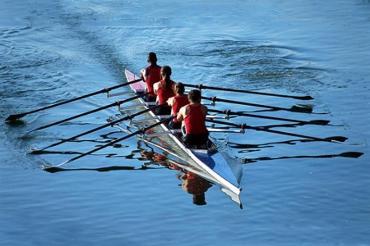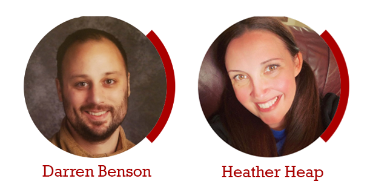Welcome to the CCTS Inclusionary Practices Project (IPP) Newsletter! Throughout the duration of this project, we look forward to sharing resources, spotlighting activities across the state, and encouraging dialogue using Basecamp. Read on for inclusionary practice reflections, a schedule of upcoming events, and stories from the field.
Reflection: Effective Collaboration – Finding Swing
What image comes to mind when you think of an effective team – a really effective collaborative team? After reading The Boys in the Boat (Brown, 2013), about the University of Washington crew team that won the 1936 Olympics, a crew team is the picture of a collaborative team that comes to my mind. Can you see them? Their strokes hitting the water in perfect unison to the beat of the coxswain, pulling and straining at their oars, and moving the boat forward through the water.
Can you picture these individuals who came to the task prepared, who trusted one another, who were unified and focused in service to a common goal, who engaged in achieving that goal, and who were dedicated to one another? This team achieved a goal that was beyond what any one of them could do individually; the sum of their collective effort was greater than the sum of each one’s effort, individually.

Those same characteristics – prepared, trusted, focused, unified, common goal, engaged, and dedicated – can apply to a group of educators engaged in the collaborative team endeavor. Each educator knows their role, knows their strengths and weaknesses as well as those of their teammates, and trusts one another. The team plays to their strengths, undergirds weaknesses, and focuses their efforts toward the goal of ensuring ALL students learn course content.
Of course, I am describing an effective collaborative team, who just like the UW crew team, didn’t become effective overnight. But they persisted.
The team has established a clear common goal and focuses their time on examining student data and designing effective instruction. They identify which of their instructional practices were working and refined them based on the data. They identify the problem when a practice doesn’t work (without blame). They persisted and students benefited.
Not only do students benefit from teacher collaboration, teacher skills also improve. Teachers who collaborate more frequently report they use innovative practices more often and find themselves more confident and effective in their teaching. Collaborative practices between special educators and CTE teachers (the focus of the Inclusionary Practices Project at Center for Change in Transition Services) can only benefit both the students on IEP as well as those teachers involved – both CTE and Special Education. If they persist, the students will benefit.
One more thing about rowing teams…when they are fully in synch, they call it swing. Swing only “happens when all eight oarsmen are rowing in such perfect unison that no single action by any one is out of synch with those of all the others…Only then will the boat continue to run, unchecked, fluidly and gracefully between the pulls of the oars. Only then will it feel as if the boat is part of each of them, moving as if on its own” (Brown, p. 161).
In their persistence, I think those collaborative teams of educators found swing. Will you?
Debra Howard, Transition Specialist
Reference:
Brown, D.J. (2013). The Boys in the Boat: Nine Americans and Their Epic Quest for Gold at the 1936 Berlin Olympics. New York, NY: Viking Press

OSPI Inclusionary Practices Grant Application
- The competitive grant application for local educational agencies (LEAs) for 2020-21 IPP pilot funding is now open.
- All LEAs in Washington, including school districts, charter schools, tribal compact schools, skills centers, etc. are eligible to apply.
- Project funds are to be used for educator development (e.g. registration costs for PD, staff release time for PD, FTE for coaching, technology to support inclusive access, technology for staff training/collaboration).
- Learn more by watching the Pilot LEA Introduction video or direct your questions to David Green.

Workshop Materials and Recordings
Slide decks and captioned recordings from CCTS workshops are available online under Inclusionary Practices Resources. August workshop topics included:
- Aligning High School and Beyond Plans and IEPs
- T-Folio 101+
- Effective Collaboration
- Accommodations 101

IPP Fall Seminar
Designed for General, Special, and Career Technical Education educators and administrators.
Voices from the Field: CTE and Special Education Partnerships
October 8, 2020; 3-4:30 p.m. PDT
Learn from a panel of practitioners as they share their journey towards becoming a more inclusive school and/or district. Topics of conversation will include: co-teaching and co-planning, best practices for collaboration, inclusion in CTE, systems- and process-thinking, and more. Whether you are just beginning your IPP journey or you have been at it for years, we invite you to join us!
Register for the Voices from the Field seminar

Third Thursday Conversations
- Join CCTS for monthly Zoom conversations about inclusionary practices. The goal is to share ideas, questions, progress, and best practices in an informal environment.
- CTE staff, special education staff, district leaders, and anyone interested in increasing inclusionary practices in schools are encouraged to attend.
- Topics will vary from month to month. Visit the for details about future Third Thursday themes.
September 17, 2020 | Finding Your CTE Data
This informal discussion is intended to provide participants with ideas about accessing and examining district-level data related to their CTE and existing inclusionary practices.
Register for Third Thursday on 9/17/2020 - CTE Data

Stories from the Field
One of the most common pieces of feedback CCTS receives related to the IPP is that people want access to what others are doing in the field. "Stories from the Field" is an ongoing way we hope to amplify voices so we can learn from one another’s experiences.
Effective Practices for Co-Teaching with Evergreen Public Schools
Last month, we focused on inclusion from an administrator perspective. This month, the focus is on how to have a more inclusive classroom experience for all students by using the co-teaching model between CTE and Special Education.
Gary Hale (CCTS Project Specialist) interviewed Darren Benson (CTE Business and Marketing Teacher) and Heather Heap (Special Education Teacher) to talk about their experience in co-teaching a financial literacy class together last year.

Are you interested in sharing your story or experience about how inclusive practices are being approached in your area? E-mail Gary to be featured in an upcoming newsletter.

Don't miss the latest CCTS IPP updates!
